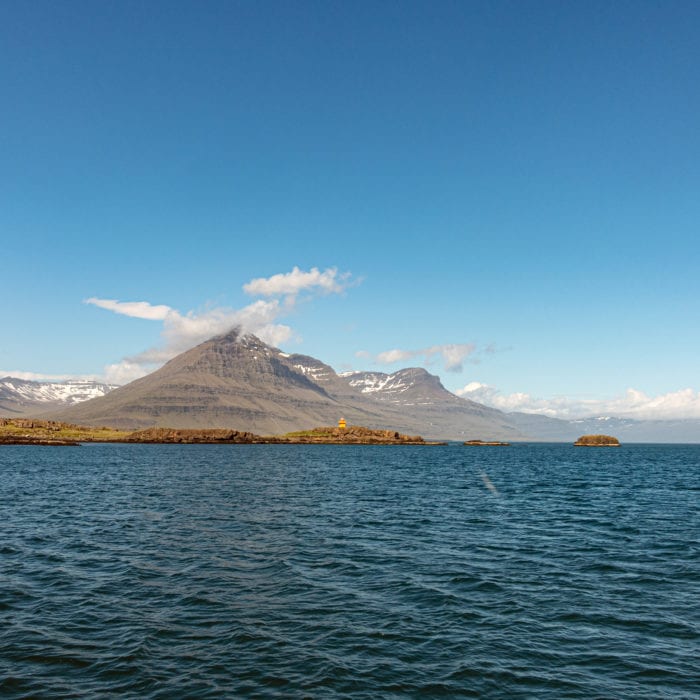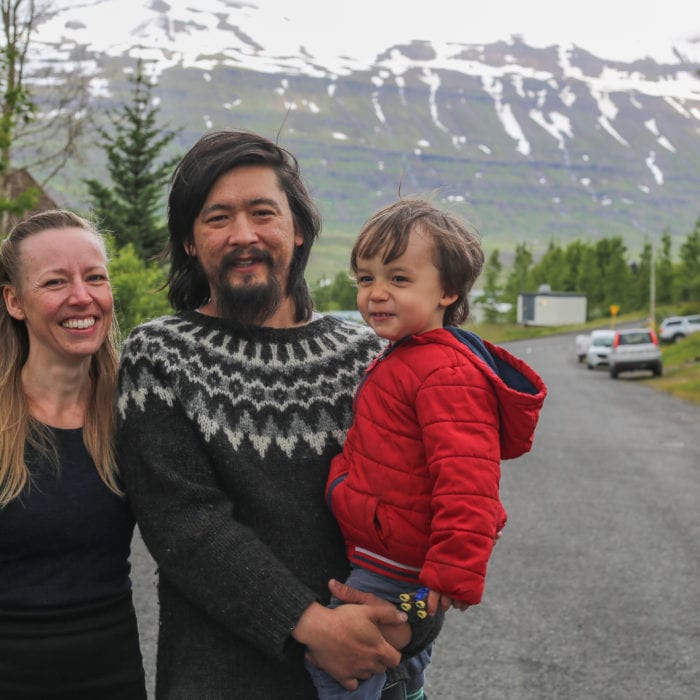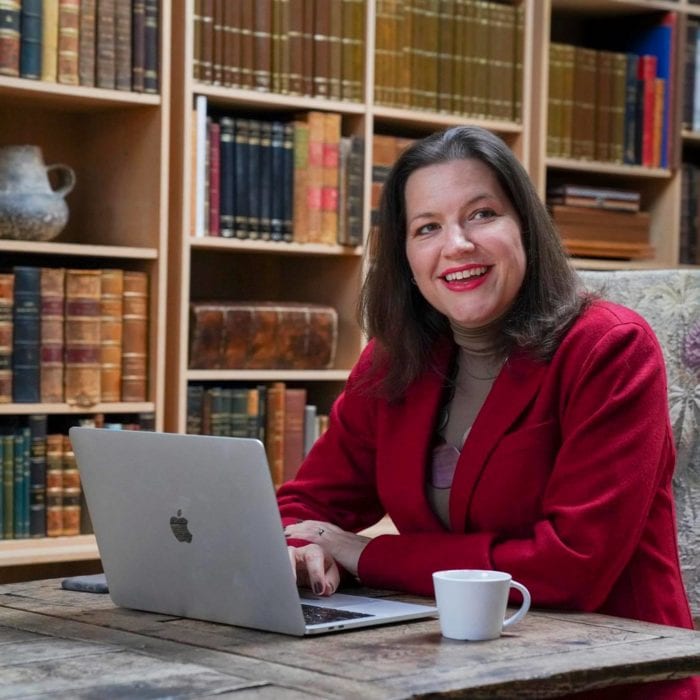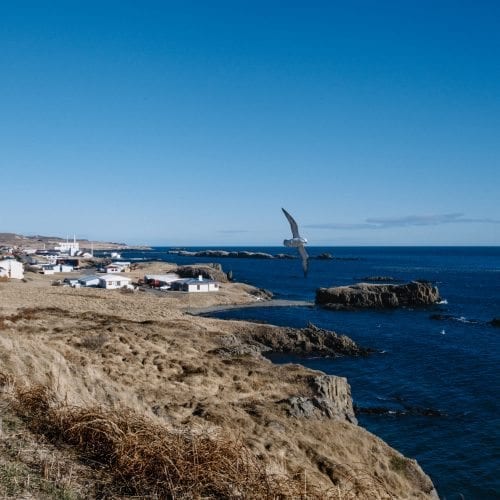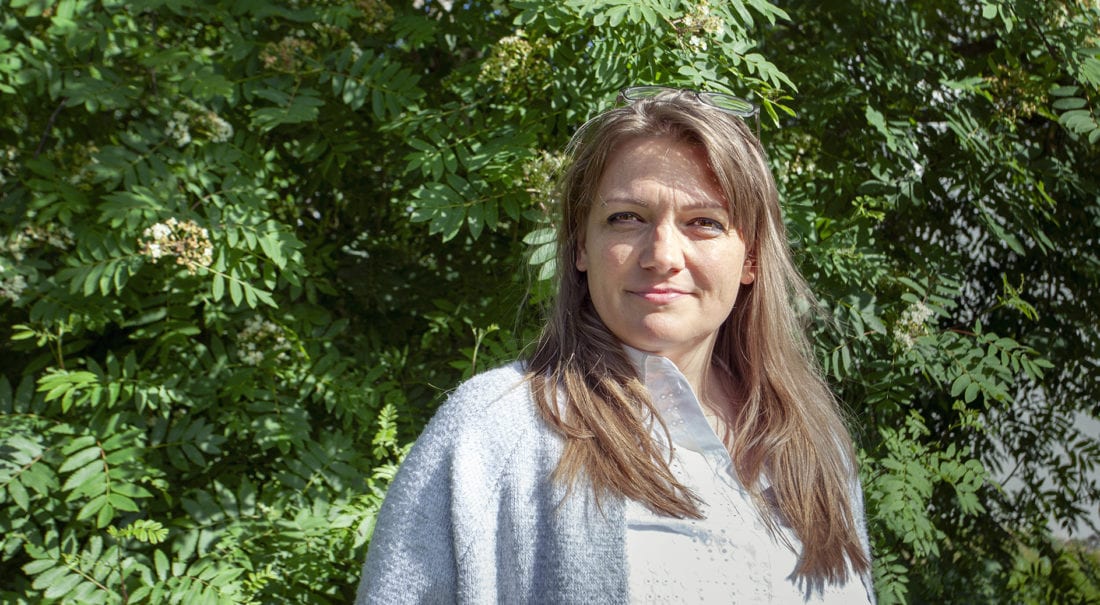
We have to be allowed to speak Icelandic with an accent
On June 23rd Austurbrú held a symposium at Neskaupstaður about topics concerning immigrants in Austurland. Immigrants in Austurland are approx. 11% of all inhabitants in the area, a number that will likely increase in coming years. The purpose of the symposium was to increase public awareness in Austurland about the issues this growing minority in our community faces. One of the speakers at the event was Malgorzata Libera (Gosia). Born and raised in Poland, she moved to Eskifjörður in 1999, when she was 21 years old. She now lives there with her husband and two children. We got permission from Gosia to publish her talk where she shared her experience of being part of an Icelandic community.
When I was asked to speak at this symposium today about my experience of moving to Iceland and living here, I started thinking about what I should talk about. There are two things that seem most important to me: The language and being an active participant in the community. These two things go hand in hand because if you can’t speak the language you can’t be an active member in the community. This is a key issue to me after living here nearly half my life.
My entire family lives in Poland, except for my father who lives in the United States. He moved there due to the high unemployment rate in Poland, to seek new opportunities and decided to stay. I came to Iceland for the same reason, at a time when the unemployment rate in Poland was 20%. I decided to leave Poland, even after finishing my studies as a tailor. At the time, traveling to Iceland and getting a work permit wasn’t easy. It took a year to get all the right permits. I came as part of a group of 13 people to work at Hraðfrystihús Eskifjarðar, now Eskja. The plan was to come to Iceland and work for a year tops, and save up enough money to go to an art academy in Poland.
For the first six months I was only part of the Polish community in Fjarðabyggð, communicated only with other Poles and just spoke Polish. Since I only planned on staying in Iceland temporarily, I didn’t try to learn Icelandic or get to know the locals. All that changed when I met my now husband which opened up new doors. I realized that the only way to become a part of the community was to learn the language. I couldn’t use English to fall back on since we didn’t learn English at school in Poland at the time. I was lucky to be able to enter the community through my husband’s family and friends. The same was not true for all of the people in the group who came to Iceland with me.
I received good support from my husband’s family from the beginning but the culture shock was extreme. Don’t take this the wrong way, but these two countries have very different traditions and customs. Religions, opinions and values are also different, not to mention the nature and the climate. At the time there was no education available, no information, no translations, no language classes, not even a Polish-Icelandic or Icelandic-Polish dictionary. The first dictionary between those two languages was published in 2002. To find your place in a new community I think it’s necessary to go through this process but equally important to take care of your own origin and culture.
I soon decided to go to school and learn Icelandic. Then came the next shock, when I sat down in a school room in a secondary school with Icelandic teenagers. I was given Icelandic books and I didn’t understand a single word. I knew all about the teacher’s appearance, how he dressed, that he had blue eyes, I can tell you all about that. Anything else that happened in these classes I couldn’t tell you about. But all jokes aside, enrolling in an Icelandic class in a public secondary school knowing absolutely nothing was a bit crazy and shocking, like a bucket of ice water.
Fortunately, all this has changed. Today, foreigners can access classes and courses in Icelandic specifically designed for them. With a great influx of immigrants to Iceland, the country and its school system has undergone vast changes. But after this experience, I have a real understanding of children who arrive in a new community without any background in the language, and how the difficulties they are faced with have a severe mental impact on them. I was an adult, yet this was a very challenging situation that greatly affected me and my self-confidence in a negative way.
My message to the people who create teaching materials for foreigners in Iceland and to the teachers in this field, is that they should include the culture shock as a topic in their classes. I feel it is important to educate immigrants about the culture shock process so that they are better informed about the fact that their feelings are normal during this adjustment and that with their ongoing enthusiasm to adjust to the community, they will begin to feel better. I have more self-confidence today and through my work at Afl Starfsgreinafélag I have my chance to assist people who are now in the same situation I once was in.
And finally, it is extremely important that immigrants maintain their own culture, as important as getting to know the new culture in the new country. In light of my topic, the importance of learning the Icelandic language to adjust to the country and its nation, I’d like to add that it is vital that the community accepts and allows Icelandic to be spoken with an accent. If we can agree on that, I have no doubt that more immigrants will dare to take that step.
—
This article was first published in a special edition of Austurglugginn dedicated to the foreign-born residents of Austurland // Greinin birtist upphaflega í sérstakri útgáfu Austurgluggans sem unnin var í samstarfi við Austurbrú þar sem fjallað var um málefni fólks af erlendum uppruna á Austurlandi.
